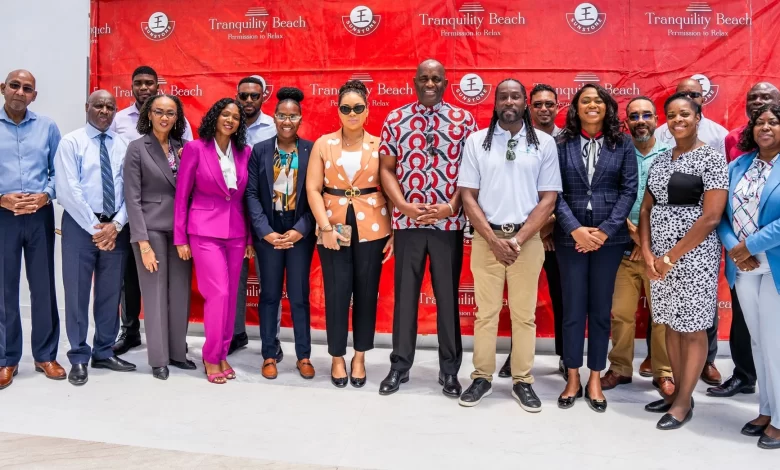Cabinet of Ministers in Dominica

The Cabinet of Ministers in Dominica is a constitutionally established body comprising the Prime Minister, Ministers, Ministers of State, and Parliamentary Secretaries who are collectively responsible for governing the country. It is the executive authority tasked with formulating national policy, managing public affairs, and ensuring the smooth administration of government across all sectors.
Constitutional Foundation and Authority
The Cabinet derives its legal authority from the Constitution of the Commonwealth of Dominica, which stipulates the roles, powers, and responsibilities of the executive branch. According to the Constitution:
- The Prime Minister is appointed by the President and is typically the leader of the political party or coalition with the majority in the House of Assembly.
- The President, acting on the advice of the Prime Minister, appoints other Ministers from among elected members of Parliament or appointed Senators.
The Cabinet functions with collective responsibility, meaning all decisions are made collectively and supported publicly by all members, even if individual views differ.
Composition of the Cabinet of Ministers
The Cabinet includes the Prime Minister as head of government, Ministers leading key ministries, Ministers of State with specific roles within those ministries, and Parliamentary Secretaries who assist in carrying out government responsibilities, ensuring effective leadership and coordinated national governance.
Current Cabinet Members
The Cabinet plays a central role in guiding Dominica’s development across critical sectors. As of December 2022, the Cabinet comprises:
- Prime Minister and Minister for Investment and Governance: Hon. Roosevelt Skerrit
- Minister for National Security and Legal Affairs: Hon. Rayburn Blackmoore
- Minister for Finance, Economic Development, Climate Resilience and Social Security: Hon. Dr. Irving McIntyre
- Minister for Foreign Affairs, International Business, Trade and Energy: Hon. Dr. Vince Henderson
- Minister for Education, Human Resource Planning, Vocational Training, and National Excellence: Hon. Octavia Alfred
- Minister for Labour, Public Service Reform, Social Partnership, Entrepreneurship and Small Business Development: Hon. Miriam Blanchard
- Minister for Health, Wellness and Social Services: Hon. Cassanni Laville
- Minister for Housing and Urban Development: Hon. Melissa Skerrit
- Minister for Environment, Rural Modernisation, Kalinago Upliftment and Constituency Empowerment: Hon. Cozier Frederick
- Minister for Tourism: Hon. Denise Charles
- Minister for Agriculture, Fisheries, Blue and Green Economy: Hon. Roland Royer
- Minister for Public works, Public Utilities and Digital Economy: Hon. Fidel Grant
- Minister for Culture, Youth, Sports and Community Development: Hon. Gretta Roberts.
- Minister of State in the Ministry of Labour, Public Service Reform, Social Partnership, Entrepreneurship and Small Business Development: Hon. Daren Pinard
- Minister of State in the Ministry of Agriculture, Fisheries, Blue and Green Economy: Hon. Jullan Defoe
- Minister of State in the Ministry of Culture, Youth, Sports and Community Development: Hon. Oscar George
- Minister of State in the Ministry of Public works, Public Utilities and Digital Economy: Hon. Chekira Lockhart-Hypolite
- Minister of State in the Ministry of Health, Wellness and Social Services: Hon. Dr. Cassandra Williams
- Parliamentary Secretary in the Ministry of Education, Human Resource Planning, Vocational Training, and National Excellence: Hon. Fenella Wenham
- Parliamentary Secretary in the Ministry of Environment, Rural Modernisation, Kalinago Upliftment and Constituency Empowerment: Hon. Darron Lloyd
- Parliamentary Secretary in the Ministry of Agriculture, Fisheries, Blue and Green Economy: Hon. LaKeyia Joseph
- Parliamentary Secretary in the Ministry of Health, Wellness and Social Services: Hon. Kent Edwards
Appointments may change with new administrations, reshuffles, or resignations, but the structure remains largely consistent.
Role and Responsibilities
The Cabinet of Ministers plays a central role in Dominica’s governance and development. Key responsibilities include:
1. Policy Formulation
The Cabinet sets the national agenda by developing and approving policies that guide government operations. These policies range from economic development and climate resilience to healthcare and education reform.
2. Budget and Fiscal Oversight
Cabinet Ministers are responsible for preparing and executing the national budget. The Minister of Finance, under the Prime Minister’s leadership, presents the national estimates and manages public expenditure to align with government priorities.
3. Legislation and Legal Review
The Cabinet initiates, reviews, and approves proposed legislation before it is introduced in the House of Assembly. This ensures that new laws align with the government’s broader strategy.
4. Crisis Management and National Security
In times of natural disaster, economic crisis, or health emergencies, the Cabinet convenes to develop immediate response strategies. The Minister of National Security and Minister of Health play prominent roles in such circumstances.
5. International Representation
Cabinet members represent Dominica in international forums, negotiate bilateral agreements, and engage in diplomatic relations. The Minister for Foreign Affairs and Trade plays a lead role in positioning Dominica on the global stage.
Functioning of the Cabinet
The Cabinet meets regularly, often weekly, to deliberate on key matters. During these meetings:
- Ministers report on their portfolios
- New policies are debated and approved
- National issues are addressed through consensus
- Cabinet papers and proposals are reviewed in detail
The Cabinet Secretary serves as the chief administrative officer, coordinating meetings, recording decisions, and ensuring follow-up across ministries.
Accountability and Transparency
The Cabinet is accountable to the Parliament of Dominica and, by extension, to the citizens. Ministers must answer questions during parliamentary sessions, justify their actions, and participate in debates. Regular press briefings, town halls, and budget presentations further enhance transparency.
Inter-Ministerial Collaboration
The complexity of governance in a modern state demands cross-ministry collaboration. For example:
- Agriculture and Environment Ministries collaborate on climate-smart agriculture
- Health and Education work together on school wellness programs
- Trade and Tourism jointly advance investment promotion strategies
Special committees and inter-ministerial task forces are formed to streamline this cooperation.
Key Developments and Evolving Role
Under recent administrations, the Cabinet of Ministers has become more integrated with digital governance, public sector reform, and resilience planning. New portfolios like Digital Economy, Climate Resilience, and Kalinago Upliftment reflect the evolving priorities of the Dominican government.
Additionally, there has been a notable increase in female representation and younger leaders within the Cabinet, indicating progress toward inclusive governance.




